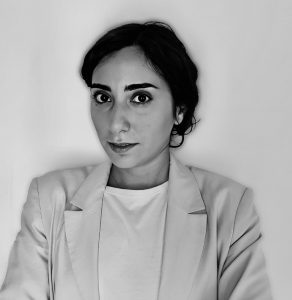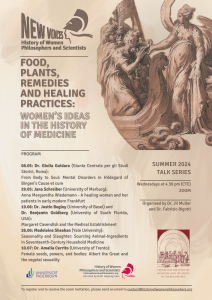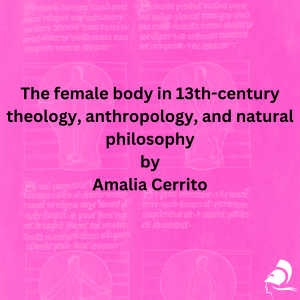
Our Summer 2024 Term Online Series is nearing its end. The New Voices Series Food, Plants, Remedies and Healing Practices: Women’s Ideas in the History of Philosophy has been a great succes.
The final talk will be held on July 10th, at 4.30 pm, by Dr. Amalia Cerrito (University of Trento), who will talk about Female seeds, powers, and bodies: Albert the Great and the vegetal sexuality.
The 13th-century Dominican master Albert the Great extensively discusses vegetal sexuality. While animals reproduce through the mating of female and male individuals, plants lack a sexual distinction, reproducing through seeds that contain all necessary conditions for plant generation. Furthermore, the primary paternal and maternal functions, such as fertilization, generative material provision, and nourishment during development, do not involve individuals of the same plant species. External causal agencies perform these functions, like the Sun and the soil (traditionally regarded as the “father and mother of plants”). Despite the evident differences in animal and plant generation, Albert uses concepts such as “male and female”, “motherhood and fatherhood”, to explain vegetal sexuality. He is convinced that “male and female” and “motherhood and fatherhood” manifest in nature to varying degrees, ranging from the most perfect nature, i.e., human beings, to the less perfect, i.e., plants. Applying these categories to plants, he develops an explanatory model that aims to identify causal roles and powers of male and female, fatherhood and motherhood, in proportion to plant generation, using a comparative approach modeled on animal generation. In Albert’s view, plants lack sexually differentiated bodies not due to a factual absence of “male and female” attributes, powers, and causation outright, but rather as a consequence of their ontological status not due to a factual absence of “male and female” attributes, powers, and causation outright, but rather as a consequence of their ontological status. Plants express masculinitas and femininitas proportionally to their nature. The examination of plant generation provides an opportunity to elucidate these concepts, defining the essential aspects and causal roles of male and female functions and features. In this lecture, I will focus on how Albert employs concepts such as the female “body”, “seed”, and “power”, in his investigation on vegetal sexuality. By developing the analogy between the uterus/terra/mater (uterus/soil/mother), he adapts the Galenic humoral-complexion theory to the soil and identifies maternal and feminine properties and powers even in the simplest living body —namely, that of plants.
categories to plants, he develops an explanatory model that aims to identify causal roles and powers of male and female, fatherhood and motherhood, in proportion to plant generation, using a comparative approach modeled on animal generation. In Albert’s view, plants lack sexually differentiated bodies not due to a factual absence of “male and female” attributes, powers, and causation outright, but rather as a consequence of their ontological status not due to a factual absence of “male and female” attributes, powers, and causation outright, but rather as a consequence of their ontological status. Plants express masculinitas and femininitas proportionally to their nature. The examination of plant generation provides an opportunity to elucidate these concepts, defining the essential aspects and causal roles of male and female functions and features. In this lecture, I will focus on how Albert employs concepts such as the female “body”, “seed”, and “power”, in his investigation on vegetal sexuality. By developing the analogy between the uterus/terra/mater (uterus/soil/mother), he adapts the Galenic humoral-complexion theory to the soil and identifies maternal and feminine properties and powers even in the simplest living body —namely, that of plants.
 Those who are currently recognizing Amalia Cerrito as a familiar figure may recall her participation in the last year’s conference Women and their Body, organzied by the Center for the History of Women Philosophers and Scientists.
Those who are currently recognizing Amalia Cerrito as a familiar figure may recall her participation in the last year’s conference Women and their Body, organzied by the Center for the History of Women Philosophers and Scientists.
https://www.youtube.com/watch?v=NMVhhtuJN88&list=PLk7u6-nmv4F5rXb1Kwfmi8X0YQpFahEIT&index=16
Jil and Fabrizio hope to see many of you at their last meeting.
Everyone is welcome to attend.
To register and to receive the zoom invitation, please send an email to contact@historyofwomenphilosophers.org
You cannot copy content of this page








